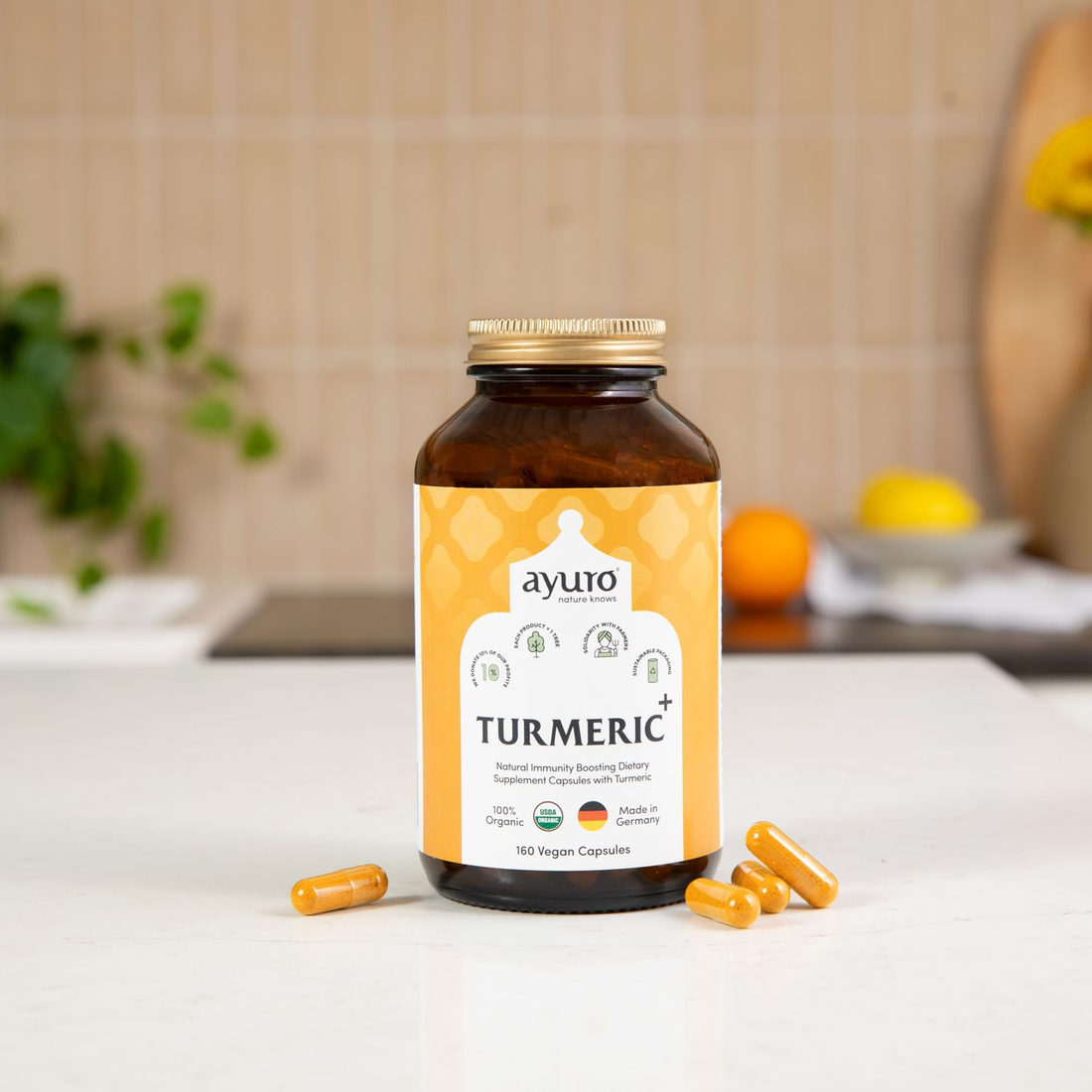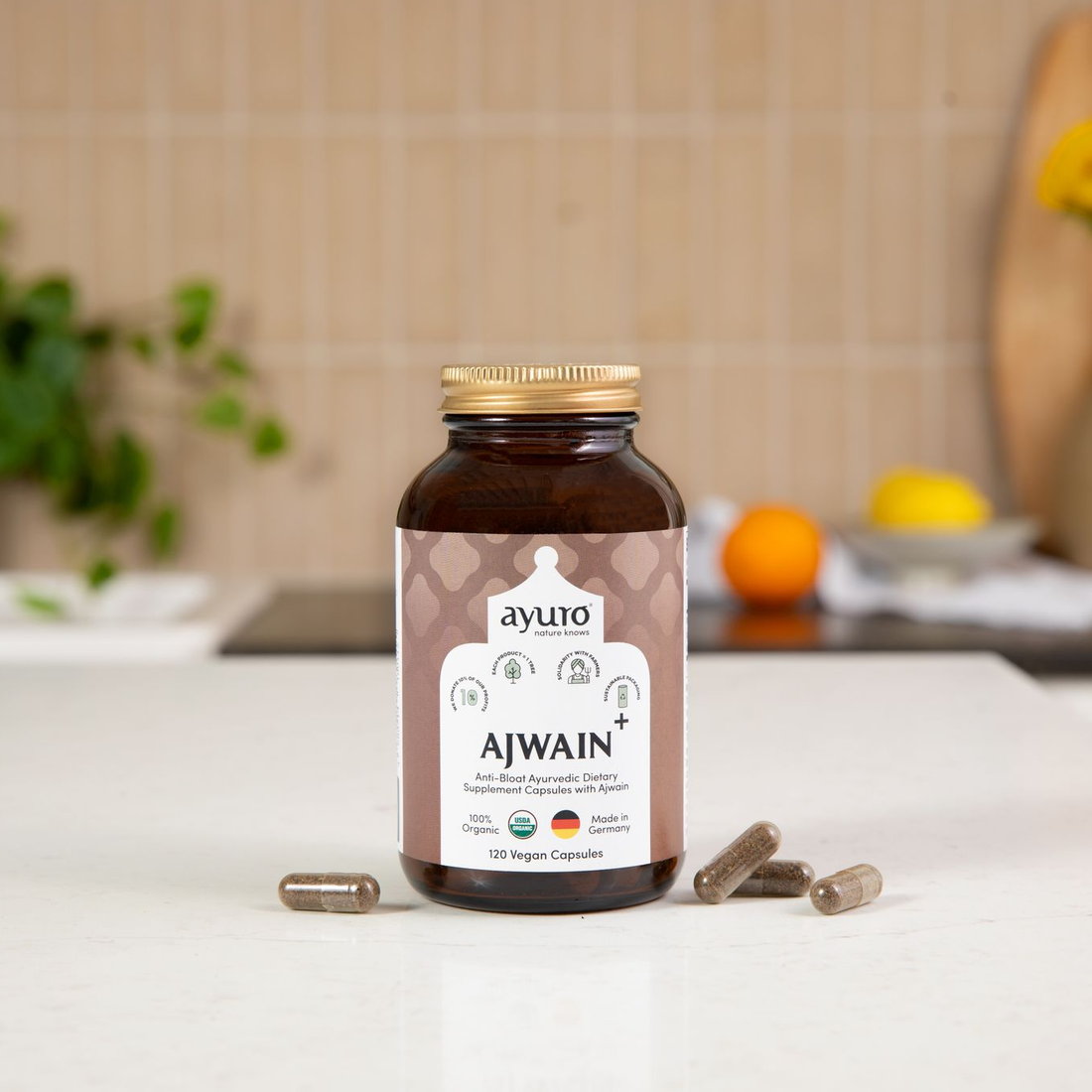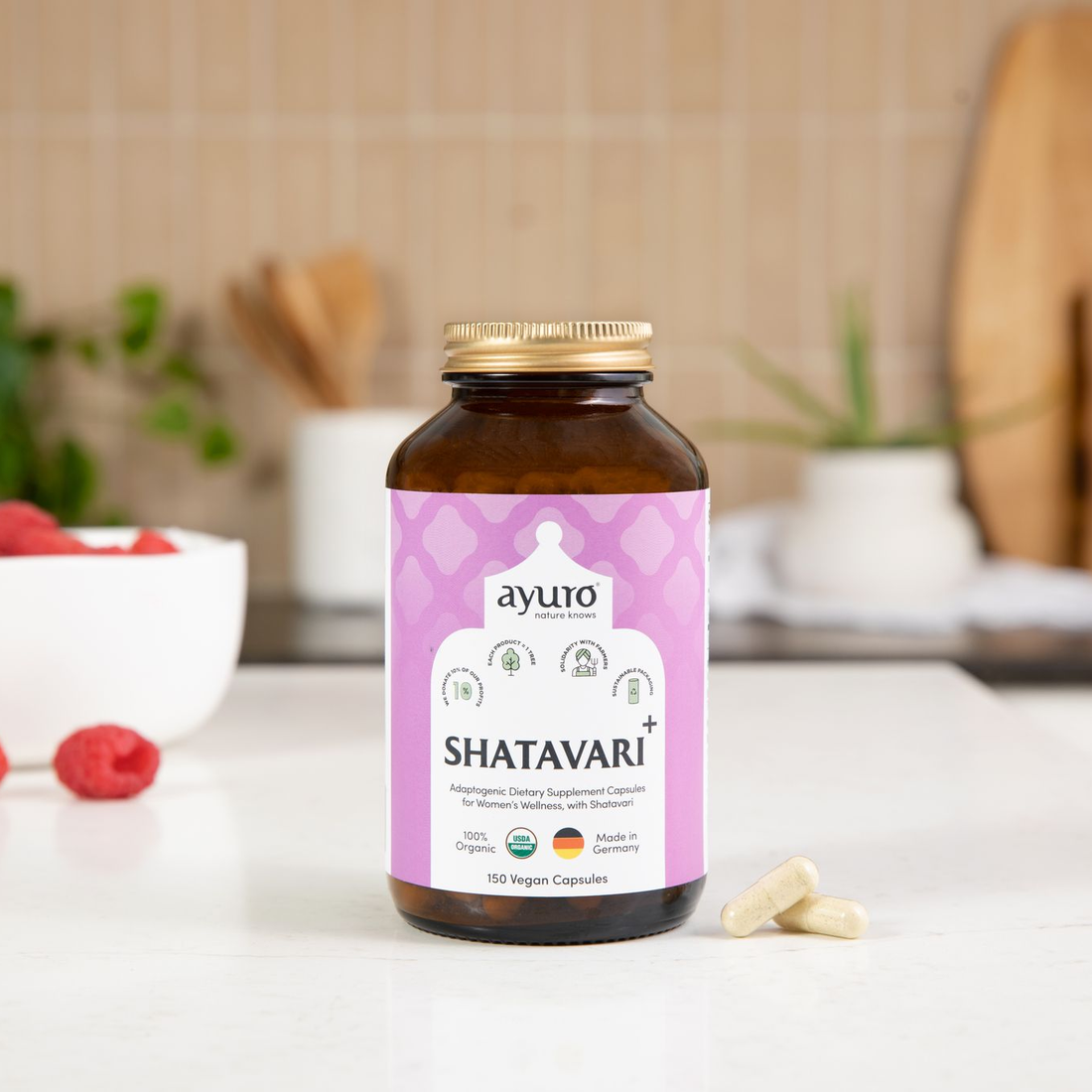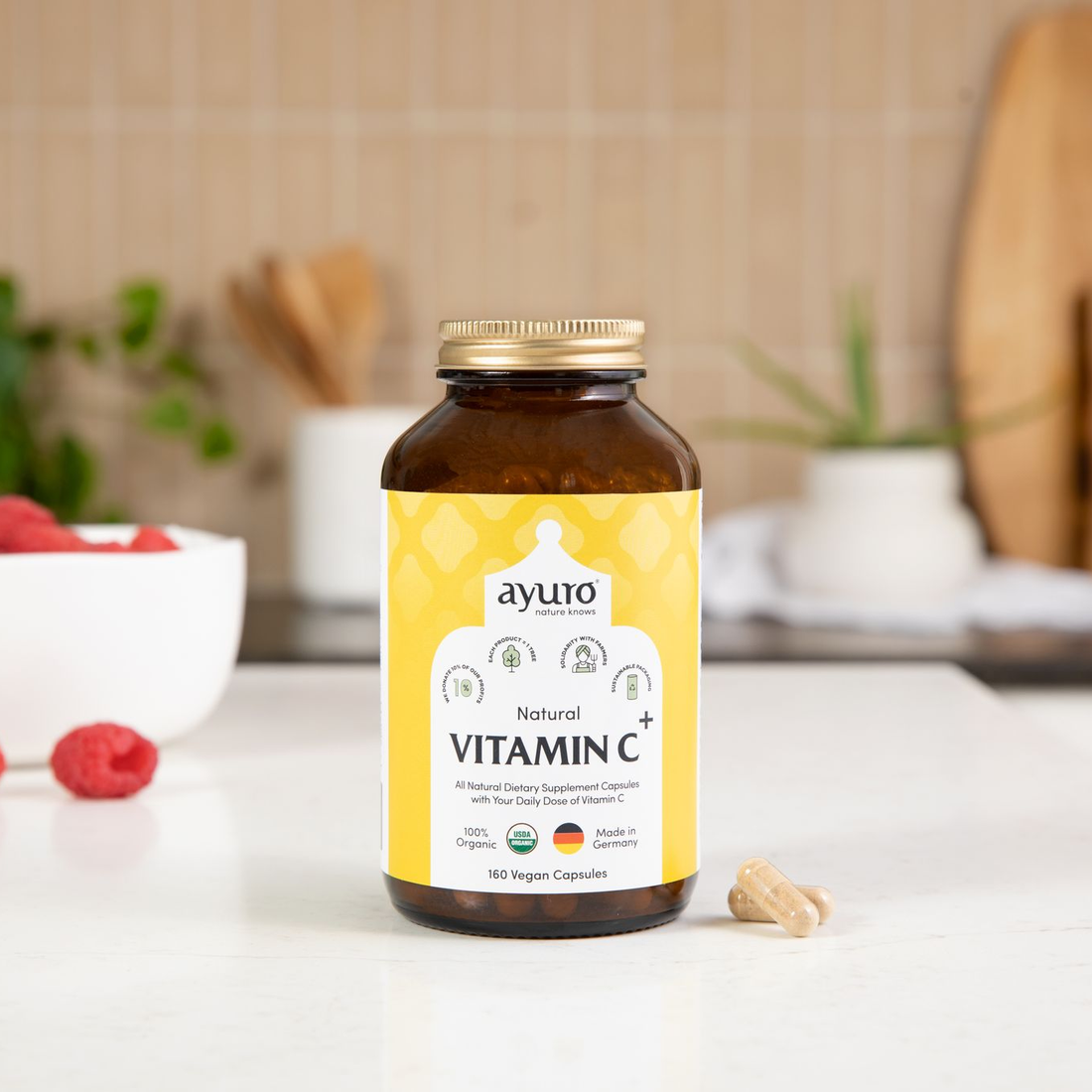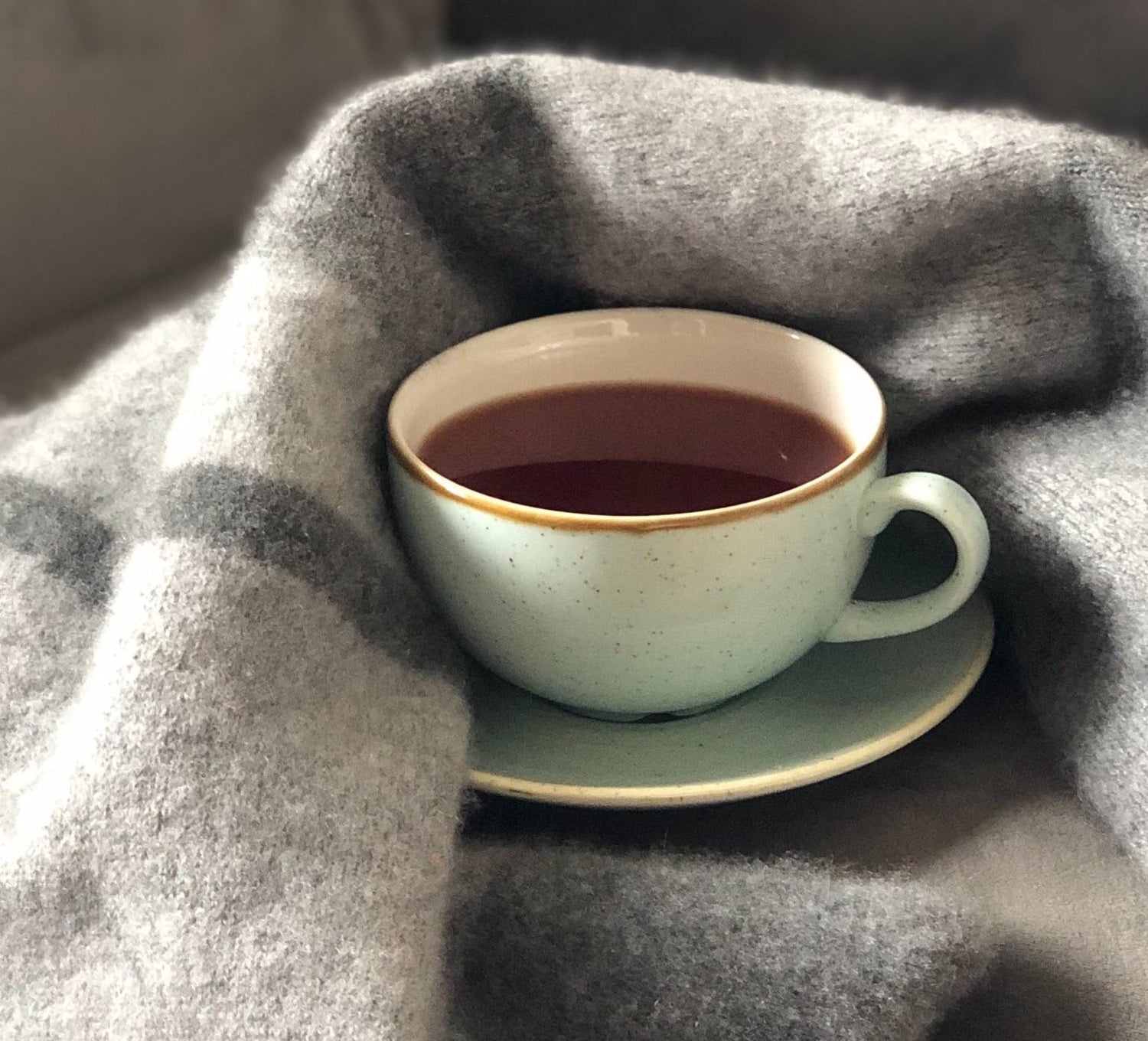n a world filled with stressors and uncertainties, it's no wonder that many people struggle with mental health and even succumb to chronic stress. Some feel that they need to turn to anti-anxiety medication for managing stress. To them, these pharmaceutical interventions may relieve the overwhelming grip of relentless worry and fear.
However, it's crucial to recognize that while anti-anxiety medicine can reduce mental stress and anxiety symptoms, it is not a long-term solution. This blog explores why relying on medication to combat anxiety is not an effective and sustainable approach.
We will delve into natural supplements, alternative strategies, and lifestyle changes geared to help reduce stress levels and promote a sustainable sense of well-being.
Symptoms Of Anxiety And Chronic Stress
Anxiety and chronic stress manifest in various ways, including physical, emotional, behavioral, and cognitive symptoms. People experience stress in different ways. They will typically experience some or all of these symptoms in various degrees:
Physical symptoms
Fatigue and sleep problems
Worrying is exhausting! You could become physically and mentally tired when you constantly feel worried or stressed. Sadly, it doesn't mean you'll get a good night's rest. People with high anxiety levels often struggle with falling asleep and remaining asleep, even when exhausted.
Stress disrupts sleep patterns, leading to poor-quality sleep or insomnia - yet another underlying cause of high blood pressure. Sleep problems also create more fatigue and can interfere with your ability to function during the day.
Muscle tension
Anxiety can cause muscle tension, which can cause headaches, back pain, and stomach pain. It can also cause you to unconsciously clench your jaw or grind your teeth, even during sleep.
Digestive problems
Did you know that stress can cause an upset stomach? There is a direct link between the gut and the brain, which influences every other part of the body. Stress can disrupt the digestive tract and cause irregular bowel movements, constipation, and diarrhea.
It can alter the gut microbiota, which affects digestion, immune function, and nutrient absorption. Chronic stress also causes inflammation, which is associated with conditions like ulcerative colitis and gastritis, and it can worsen symptoms of existing digestive conditions like IBD, IBS, gastroesophageal reflux disease (GERD), and peptic ulcers.
Increased heart rate and blood pressure levels
Anxiety and stress can cause a racing heart and palpitations and significantly impact blood pressure levels. Stress causes various physiological changes, including the fight or flight response, which releases stress hormones like cortisol and adrenaline, causing your blood vessels to constrict.
An increased heart rate and narrowing blood vessels can spike blood pressure levels. Stress also causes inflammation. Over long periods, it can affect your blood vessels and cause high blood pressure.
Unhealthy coping mechanisms

Stress can cause some people to adopt harmful coping mechanisms like smoking, overeating, and drinking too much alcohol. Some people feel lethargic and reduce their physical activity levels instead of binge-watching TV or sleeping. All of this can contribute to or worsen high blood pressure.
Shortness of breath, sweating, and trembling
There are several obvious physical signs of anxiety, like rapid breathing, sweating, and trembling. It may be challenging to keep your breathing in check when stressed. You may start taking quick, shallow breaths and experience a feeling of breathlessness.
As anxiety levels rise, you may also experience sweating, even when sweating is not warranted, like in cooler temperatures. Some people experience trembling hands or even full-body trembling when they experience heightened stress.
Emotional symptoms
Excessive worry
Stress can cause constant, overwhelming, and irrational feelings of worry about various aspects of your life or future events and potential scenarios.
Irritability
People experiencing chronic stress or anxiety may become easily agitated, annoyed, or impatient. They may snap at small things and come across as ill-tempered or angry.
Restlessness
Heightened anxiety levels can cause feelings of restlessness and being on edge. It can also leave you feeling unable to relax.
Panic and fear
Sometimes, anxiety and stress can cause sudden, intense feelings of fear or panic attacks characterized by various physical and emotional symptoms.
Exaggerated startle response
When stressed, you may experience being easily startled by sudden movements or noise.
Behavioral symptoms
Procrastination
Small tasks may seem monumental When feeling anxious or stressed. It can make it difficult to tackle even basic responsibilities.
Isolation
Avoiding situations, people, or activities that trigger stressful feelings can lead to social isolation. Over time, isolation and avoidance can elevate anxiety levels.
Substance abuse
Some people turn to alcohol or drugs to temporarily escape the stress. It's an unhealthy coping mechanism that will make things worse over time.
Nervous habits
Repetitive actions like hair twirling, nail-biting, and foot tapping can soon turn into nervous habits.
Cognitive symptoms
Racing thoughts
Anxiety causes significant mental stress, and one of the symptoms is a constant stream of intrusive, anxious, or negative thoughts.
Memory problems
You may experience difficulty remembering things, which can worsen with chronic stress.
Catastrophizing
It can be challenging to remain positive when you experience chronic stress. Overestimating the potential adverse outcomes of situations or events can create unnecessary worry and even more stress.
Trouble focusing
Stress can make it difficult to focus on daily tasks or concentrate on conversations. It can even cause difficulty with making decisions and affect short-term memory.
Mindfulness
During challenging situations, it may be difficult to stay in the present moment. Instead of being mindful of your surroundings, you may be preoccupied with future or past concerns.
What to do if you notice these symptoms
If you're experiencing any of these symptoms, it's important that you know occasional stress or anxiety is normal. Life comes with unique challenges, some of which are bound to affect us! However, if these symptoms become so severe that they significantly interfere with daily functioning, it's time to seek professional help.
Talk to a mental healthcare provider about treatment options, which may include therapy, healthy lifestyle changes, health supplements, and sometimes medication. If you are prescribed medicine for anxiety or stress, ask your doctor whether it is temporary and if there are other options. Anti-anxiety medication should never be a permanent solution. Let's explore the reasons behind this.
Why Relying On Anxiety Medication Is Not A Solution
Relying solely on medication to combat anxiety is not an effective and sustainable approach for several reasons:
It's temporary
Medications like anti-anxiety drugs or antidepressants can provide temporary relief from the symptoms of stress and anxiety, but they do not address the root causes of it. They primarily work by altering brain chemistry to reduce symptoms, which means the relief is often short-lived.
The side effects can be horrible
Anti-anxiety medications can have side effects that can be unpleasant or even debilitating for some people. These side effects can range from dizziness and nausea to weight gain and sexual dysfunction and can reduce your overall quality of life.
It may be habit-forming
Some anxiety medications are habit-forming, leading to dependency and potential withdrawal symptoms if you stop using them. This can create a cycle of reliance on medication without addressing the underlying issues.
Your tolerance determines the dose
Over time, your body can develop a tolerance to certain medications, requiring higher doses to achieve the same level of relief. This leads to an increase in medication usage, which is not sustainable in the long term and may not be safe.
It prevents you from developing coping mechanisms
Relying solely on medication can prevent you from effectively learning the skills and coping mechanisms to manage stress and anxiety. Learning how to deal with stressors, develop resilience, and implement healthy lifestyle changes that can provide long-term benefits is important.
It is an incomplete treatment
Medication alone does not provide a holistic approach to mental health. It should be part of a comprehensive treatment plan that may include therapy, lifestyle changes, health supplements, and self-care practices. Ignoring these essential components can lead to incomplete treatment and limited progress.
You may miss the underlying causes
Stress and anxiety often have underlying psychological, social, or environmental causes. Medication may mask symptoms but does not address these root causes. Effective treatment should involve identifying and addressing these underlying factors.
You may risk relapse
When you rely solely on medication and do not develop coping strategies, you may be at a higher risk of relapse if you stop taking the medication or face new stressors.
It can be expensive
There is no way to tell what financial burden long-term medication will be on you, especially if your tolerance increases and you need to take higher doses of medication for relief.
Ethical and moral concerns
Some people believe that taking anti-anxiety medication over time can lead to the medicalization of normal human emotions and experiences. There are ethical and moral concerns about turning to medication as a first-line treatment without considering alternative approaches that may be more appropriate. Let's talk about these.
Healthy Lifestyle Changes You Should Consider
A holistic approach to combating stress and anxiety involves taking care of the physical aspects of your health and also the emotional, mental, and spiritual dimensions. Here are 20 holistic lifestyle changes to consider for managing stress and anxiety:
1. Start a mindfulness meditation practice
Practice mindfulness meditation regularly to stay present, reduce racing thoughts, improve mental clarity, and increase awareness of your emotions. Meditation practices can help you manage stress more effectively. If you need help with meditating, look for a meditation teacher to help you start.
2. Learn how to do deep breathing exercises
Consciously slowed breathing has anti-anxiety effects. Adding deep breathing exercises into your daily routine can help to calm the nervous system and reduce anxiety. Techniques like diaphragmatic breathing and the 4-7-8 technique can be helpful.
3. Practice yoga and yoga philosophy

Yoga is an ancient Indian philosophy that's more than rolling out a yoga mat and moving through a sun salutation a few times. It consists of yoga poses, for example, child's pose, tree pose, triangle pose, breathing techniques, and moving meditation. A complete yoga practice also includes a gentle philosophy with elements you can apply to every aspect of your life.
Yoga practitioners embrace the philosophy that teaches moral disciplines, positive actions, meditation practices, and focus. They benefit from relaxation, flexibility, and mindfulness, making it an effective stress-management tool.
If you want to start a yoga practice and don't know where to start, consider attending yoga classes. Try different forms of yoga and different yoga teachers until you find something that resonates with you. Soon, practicing yoga will become effortless and fun.
4. Practice Tai Chi
Tai Chi is a Chinese martial art practiced for health and self-defense. This mind-body exercise involves slow, flowing movements and deep breathing techniques. It can improve your balance, help reduce stress, and enhance overall well-being.
5. Try progressive muscle relaxation
Progressive muscle relaxation (PMR) is a deep muscle relaxation method. It involves systematically tensing and then relaxing muscle groups in your body. The idea behind this method is that there is a relationship between a person's mind and body.
The practice helps you to release physical tension and promote relaxation. Progressive muscle relaxation is simple enough and doesn't take much time, making it an excellent option to incorporate into your life as a daily practice.
6. Embrace holistic nutrition
Nutrition is an integral part of a healthy lifestyle. It involves a balanced diet that includes whole foods, healthy fats, lean proteins, whole grains, and plenty of fruits and vegetables. Avoid or limit processed foods, added sugars, and excessive caffeine. If your body feels healthy and energetic, it will positively impact your mental and emotional state.
7. Make your eating mindful
Eating to combat anxiety is about what you eat and how you eat. Pay attention to your eating habits, including portion sizes and the emotional aspects of eating. Recent research has shown that mindful eating may even help with weight loss! Eat slowly and enjoy your meals.
8. Invest in herbal supplements
Explore natural supplements like Ayurvedic medicines to address the root cause of anxiety and bring your body back into balance. Some of these medicines are ashwagandha, brahmi, tulsi, and triphala. Or try plant remedies known for their calming effects to treat anxiety symptoms, for example, chamomile, lavender, valerian root, or passionflower.
9. Limit stimulants
Stimulants like caffeine, nicotine, and amphetamines stimulate the nervous system and can mimic some of the anxiety symptoms like increased heart rate, restlessness, and jitters. Reduce your intake or eliminate stimulants if you're struggling with anxiety.
10. Stay hydrated
Drink plenty of water throughout the day to stay hydrated, as dehydration can exacerbate stress and anxiety symptoms. Supplement your diet with healthy foods with high water content, like melons, pineapples, cucumber, and celery.
11. Get quality sleep
Not sleeping well leaves us feeling unrested, emotionally sensitive, and reactive. If you have trouble sleeping, establish a regular sleep schedule by creating a relaxing bedtime routine. It's also essential to ensure your sleep environment is conducive to rest.
12. Enjoy regular physical activity
Regular physical activity like walking or dancing releases endorphins and reduces stress hormones. A regular yoga practice will provide physical activity while calming the mind and providing mental stimulation.
13. Make self-care holistic
Develop a self-care routine that addresses your physical, mental, emotional, and spiritual needs. This may include practices like regular meditation practice, journaling, art therapy, or spending time in nature.
14. Make positive social connections

Nurture positive relationships with friends and family members who provide emotional support. Social connections can buffer the effects of stress.
15. Limit screen time
Scientific evidence shows that spending too much time on screens can increase anxiety and stress, especially in adolescents and children. If you spend much of your day looking at screens, it may be time for a digital detox. Read our blog about how to do a digital detox in 10 simple steps.
16. Try holistic therapies
Explore holistic therapies like acupuncture, aromatherapy, or craniosacral therapy, which can help balance the body's energy and promote relaxation.
17. Focus on time management
Organize your time effectively to reduce feelings of overwhelm. Prioritize tasks and delegate when possible.
18. Start a regular gratitude practice
Cultivate gratitude by regularly reflecting on what you're thankful for, or begin a gratitude journal. It can shift your focus away from stressors.
19. Express yourself creatively
Engage in creative pursuits like art, dancing, music, or creative writing to express your emotions and reduce stress.
20. Cultivate a spiritual practice
Explore your spirituality and engage in practices that provide a sense of purpose and connection, whether through prayer, meditation, or nature-based spirituality.
Remember that a holistic approach to managing stress and anxiety is highly individualized. Experiment with various activities and lifestyle changes to determine what works best.
Herbal supplements That Help Relieve Stress

There are various herbal supplements and Ayurvedic treatment options you can consider for managing stress levels. Here are some Ayurvedic remedies that you can take to help you balance your body so it can better manage your stress response.
Ashwagandha (Withania somnifera): Also known as Indian ginseng, ashwagandha is an adaptogen that can help your body adapt to stress and reduce anxiety. It is known for its calming and rejuvenating properties. You can take ashwagandha as a powder, capsule form, or decoction. For a convenient and quality way to take this potent natural supplement, use AYURO Ashwagandha+ in capsule form.
Brahmi (Bacopa monnieri): Brahmi is an herb known for its cognitive-enhancing and stress-reducing properties. It is often used to improve memory and cognitive function while reducing anxiety and promoting relaxation. You can buy premium-quality AYURO Brahmi+ here.
Tulsi (Holy Basil): Tulsi is revered in Ayurveda for its adaptogenic and stress-reducing properties. It can be consumed as a tea or supplement to promote relaxation and reduce anxiety. AYURO Brahmi+ also contains tulsi, so you'll reap the benefits of both remedies.
Triphala: Triphala is a natural supplement that combines three fruits (amalaki, bibhitaki, and haritaki) to support overall health and well-being. It helps with digestion and detoxification, indirectly reducing stress by promoting better physical health. Shop for AYURO's premium-quality Triphala+ here.
Vitamin C: Everyone knows that vitamin C boosts immunity, but did you know it's also beneficial for managing anxiety? As an antioxidant, it helps reduce the oxidative stress associated with anxiety, protecting brain cells and promoting a more balanced mood. AYURO Vitamin C is 100% natural vitamin C. Read our blog to discover why that is so important.
If you take Ayurvedic supplements to help you manage stress or for other health reasons, it's essential to only take premium quality brands like AYURO. Explore our product range here or try the AYURO Mental Health bundle.
Is a Healthy Diet Really That Important?

Yes, it is. A healthy diet helps combat stress and anxiety because it directly impacts your physical and mental well-being. Here are several reasons why maintaining a nutritious diet is essential for managing stress and anxiety:
-
It helps balance nutrients: A balanced diet provides essential nutrients like minerals, vitamins, and amino acids. These nutrients are vital for your brain and nervous system to function correctly. These nutrients help produce neurotransmitters (like serotonin and dopamine) that regulate mood and reduce anxiety.
-
Regulates blood sugar: Eating regular, balanced meals helps stabilize blood sugar levels. Skipping meals or consuming high-sugar, processed foods can lead to spikes and crashes, triggering mood swings, irritability, and anxiety.
-
Boosts energy levels: A diet rich in complex carbohydrates, lean proteins, and healthy fats provides sustained daily energy. When you have stable energy levels, coping with stress is more manageable, and you'll be less likely to feel fatigued or overwhelmed.
-
Maintains the gut-brain connection: Scientific research has proven the connection between the gut and brain, known as the gut-brain axis. A healthy diet supports a diverse and balanced gut microbiome, which can positively influence mental health. An imbalanced gut can contribute to stress and anxiety.
-
Reduces inflammation: Chronic inflammation in your body can cause various mental health issues, including anxiety. Eating a diet rich in anti-inflammatory foods can help reduce inflammation.
-
Boosts antioxidants: Antioxidant-rich foods like berries, leafy greens, and nuts protect your body and brain from oxidative stress, contributing to anxiety and cognitive decline.
-
Helps with hydration: Dehydration can lead to irritability, fatigue, and difficulty concentrating, all of which can exacerbate stress and anxiety. Staying adequately hydrated is essential for optimal brain function.
-
Provides added micronutrients: Certain vitamins and minerals, such as vitamin B complex, magnesium, and zinc, are known to support mental health. Deficiencies in these nutrients can increase susceptibility to stress and anxiety.
-
Prevents unhealthy eating habits: Emotional eating, often driven by stress or anxiety, can lead to unhealthy eating habits. Practicing mindful eating and addressing emotional triggers can help prevent overeating and promote better emotional regulation.
-
Improves sleep quality: Diet can affect sleep quality, and poor sleep can increase stress and anxiety. Avoid heavy or spicy foods close to bedtime to improve sleep patterns.
-
Stress coping mechanism: Eating healthy can be a positive coping mechanism. Preparing and enjoying nutritious meals can be a calming and enjoyable activity, reducing stress.
While a healthy diet is essential to managing stress and anxiety, it should be part of a comprehensive approach that includes other lifestyle factors, as mentioned above. It's also important to note that dietary needs are individual. If unsure, stick to a clean diet or consult your healthcare provider to help you make the right food choices.
Make Mental Health A Priority - You're Worth It

In summary, while medication can be a valuable tool in managing stress and anxiety, it should typically be part of a broader treatment plan that includes therapy, lifestyle changes, and developing coping skills. Relying solely on medication is often not an effective or sustainable approach in the long term and may not address the root causes of stress and anxiety.
Every person is different and has individual needs. While one person would benefit more from a regular yoga practice to relieve stress, others may find yoga poses challenging and would instead focus on a mindfulness practice or breathing techniques. It's essential to lower stress levels with whatever suits your unique needs.
If you maintain a healthy lifestyle and incorporate self-care practices, it will help you to prevent and reduce the symptoms of anxiety. However, if you still struggle, contact your healthcare provider immediately for help.



